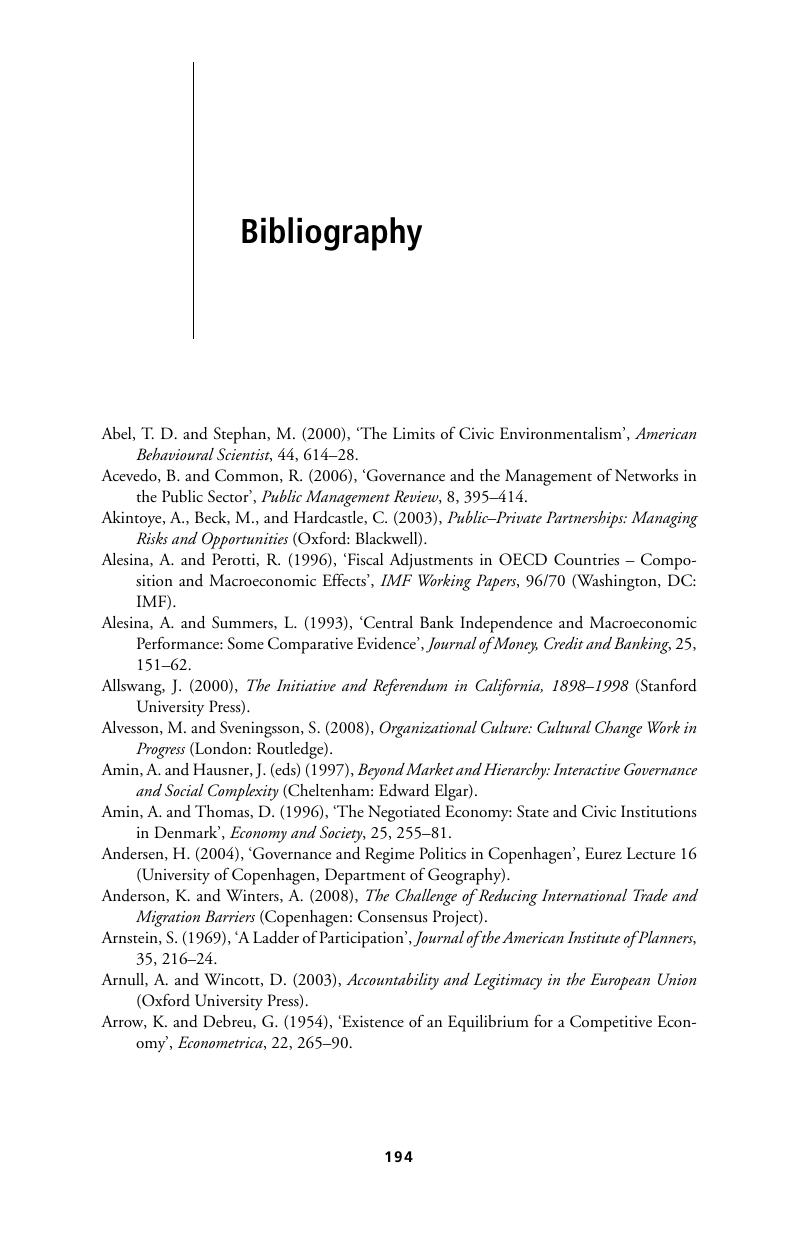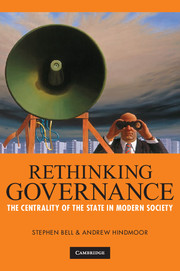Book contents
- Frontmatter
- Contents
- Figures and tables
- Preface
- 1 A state-centric relational approach
- 2 The resilient state
- 3 Metagovernance and state capacity
- 4 Hierarchy and top-down governance
- 5 Governance through persuasion
- 6 Governance through markets and contracts
- 7 Governance through community engagement
- 8 Governance through associations
- 9 Conclusion
- Notes
- Bibliography
- Index
- References
Bibliography
Published online by Cambridge University Press: 05 June 2012
- Frontmatter
- Contents
- Figures and tables
- Preface
- 1 A state-centric relational approach
- 2 The resilient state
- 3 Metagovernance and state capacity
- 4 Hierarchy and top-down governance
- 5 Governance through persuasion
- 6 Governance through markets and contracts
- 7 Governance through community engagement
- 8 Governance through associations
- 9 Conclusion
- Notes
- Bibliography
- Index
- References
Summary

- Type
- Chapter
- Information
- Rethinking GovernanceThe Centrality of the State in Modern Society, pp. 194 - 222Publisher: Cambridge University PressPrint publication year: 2009



